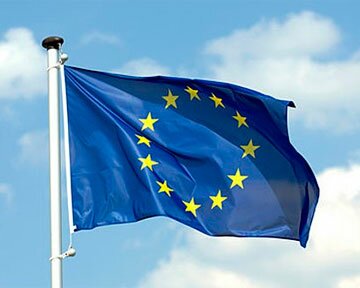
Ukraine has always been referred to as a part of the European world, that is as an inseparable component of the western civilization. To this testify the historic relations between Ukraine and Europe which helped to form the Ukrainian nation with its culture and values. Similar relations with Europe have other western Slavs, considering themselves European nations.
Sadly, due to many historical reasons, Ukraine had been cut off from Europe forced to integrate into a quite different civilization, which was being formed by the former Russian Empire, and later by the Soviet Union. All this actually stopped the national development of Ukraine, creating a real danger of complete disappearance of the Ukrainian nation’s originality within the framework of its assimilation with the “unified soviet people”. In a similar situation found themselves other countries of Central-Eastern Europe ( CEE), whom Moscow got to join the Warsaw Pact, having cut them off from Europe.
The disintegration of the Soviet Union and social camp led to dramatic changes, giving the countries controlled by Russia a chance to return to Europe. Many CEE countries have used this chance already, having integrated into NATO and EU. More so, the Baltic countries, who in their time had been annexed by the Soviet Union, have already become members of NATO and EU.
Coming back to Europe is absolutely important for Ukraine as a non-alternative way of its nation’s revival. In this aspect studying and realization of the European and Euro-Atlantic integration of the CEE countries and Baltic countries' experience on their way to Europe can be very important for Ukraine.
In particular, it consisted of two consecutive steps, namely: the countries of the former socialist block's joining NATO; and after that - their joining the EU. During their preparation for membership in the Alliance, the countries of Central-Eastern Europe and Baltic had fulfilled all the necessary procedures of bringing their political, juridical, economic systems up to the European standards. In such a way the pre-conditions had been created for their further integration into the European Union, which has wider demands to the countries-members of the organization. In particular, this regards to the guarantees of investments into their economies from both, collective funds of the EU, and from individual European investors.
The mentioned above questions are especially important for Ukraine in the situation when Russia is so active as to building the Euro-Asian Union and involving our country into it. But this will actually mean resurrection of the late USSR and losing by Ukraine its independence and complete losing of the prospects of returning to Europe.
In order to widely inform the community in the context of these problems, we offer a series of materials about the experience of European and Euro-Atlantic integration of the CEE and Baltic countries.

